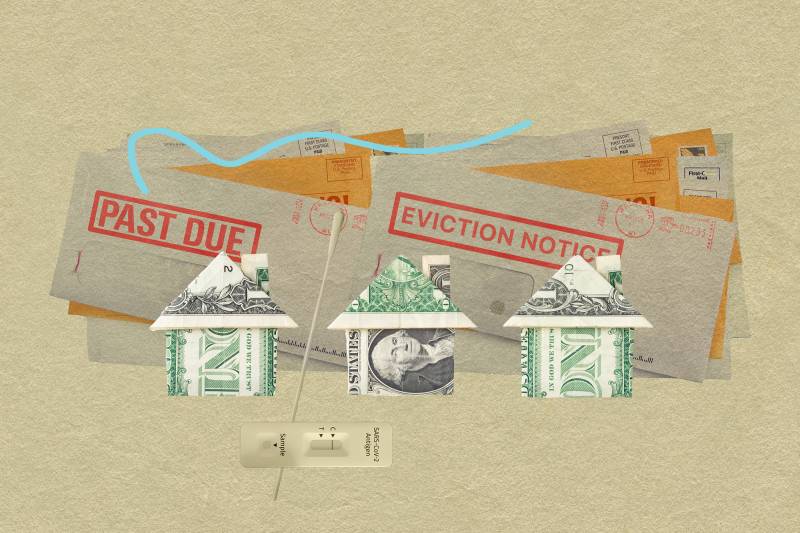Okimoto said she checks the online portal and calls the hotline nearly every day anyway.
“All they tell me is, ‘Yeah, they’re working on it. … just be patient.’” she said. “I say, ‘I’m as patient as can be. It’s been two years. You can’t get any more patient than that.’”
Landlords are also among those waiting.
Cindy, who lives near Yuba City north of Sacramento and who asked that her surname not be published so as not to jeopardize her pending payment, said she bought her three-bedroom home in early 2020 and took on two tenants to help her with the mortgage. In late 2021, one of her tenants was unable to pay his rent, so she encouraged him to apply to Housing Is Key.
Without his payments, she said she used credit cards to pay her mortgage. “That money is going to come so I’ll just use this to pay this bill,” she said she told herself.
Her payment for $13,600 wasn’t approved for nearly two years. She said she’s still waiting on the check in the mail.
Had she known at the outset how long the approval process would take, “I would have probably made different arrangements — I don’t know, maybe borrowed money from my parents,” she said. “When I moved in, I had great credit,” she said. As in the case with Addis, the Simi Valley renter, Housing Is Key has a policy of not reimbursing so-called shadow debt, loans taken out to pay down rental debt. Cindy now says she has $20,000 in credit card debt.
Last month, she said she unexpectedly lost her job of eight years.
Turning to strangers for help
Leslie Pollock, a private chef in Santa Monica, wonders how she’ll ever be able to move out of her apartment.
Living in a rent-controlled unit in Santa Monica, Pollock said she initially applied for help while recuperating from cancer treatment after the pandemic shuttered her business. Even so, she considers herself one of the lucky ones. She’s working again, cancer-free, and only owes three-and-a-half months rent. No one has threatened her with eviction yet.
But she still feels stuck. Her landlord is reluctant to do upkeep with the debt outstanding, she said, and she worries about being able to rent anywhere else with so much red ink on her record. Most frustrating of all, she said her application was approved a year ago, but the check was sent to the wrong address. She said she regularly calls the hotline to try to explain the situation, but can never get someone with decision-making power on the phone.
“I say, ‘Can I email?’ and they say ‘No, we don’t have capacity to get email,’” Pollock recalled. “They would just say ‘We can’t tell you anything,’ ‘We can’t tell you when that was approved,’ ‘We can’t tell you when that check was cut,’ ‘We can’t tell you …’”
Many of the applicants fed up with the program’s hotline or web portal have wound up in a Facebook group created by Bella Allen.
The owner of a property management company in Long Beach, Allen set up the private group in 2021 to help a friend who was trying to navigate the new state program.
Two years later the Facebook group’s membership has swelled to more than 3,000. Posts include triumphant screenshots of approval letters and despondent post-denial missives. There are requests for help translating the program’s bureaucratese, as well as rants about the state’s housing department or, more frequently, about Horne, the company hired by the state to administer the program. There’s an occasional meme and no shortage of theories that verge on conspiratorial.
As the months have dragged on, the tenor of the posts have grown more desperate and irate. Allen said she has reached out to lawmakers, lawyers, journalists and legal aid groups, all to no avail. She said she spends hours after work and late into the night moderating the group and fielding questions as best she can. But she acknowledged that she isn’t an expert and has no inside knowledge of how the program works.
“I don’t know what to tell these people,” she said. “And I’m gutted.”

